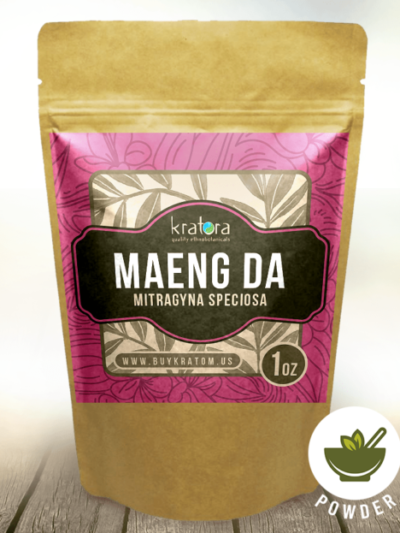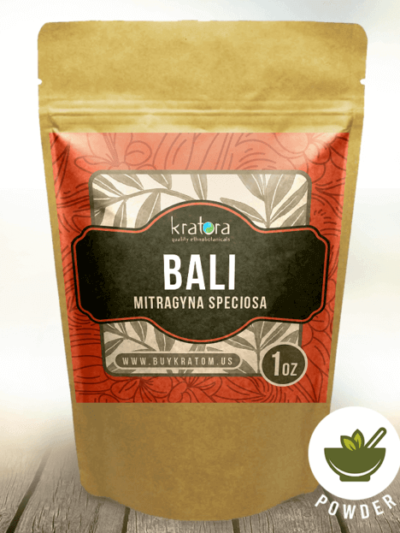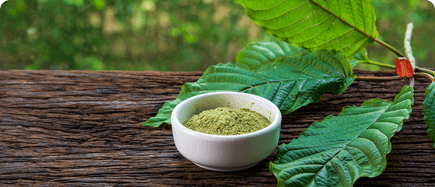Legislators in Ohio have taken a major step toward protecting kratom use in the state. House Bill 236 would prohibit the state from banning kratom and task the Ohio Department of Agriculture with developing a plan to regulate kratom in the state. The Ohio kratom bill was sponsored by state Reps. Scott Lipps (R-Franklin) and Mark Fraizer (R-Newark) and has been passed by the House. It’s now in the hands of the state Senate.
A Bit of Background on Kratom
Kratom is a tropical evergreen tree native to southeast Asia, commonly found in places like Malaysia, Indonesia, Thailand, and surrounding regions. For centuries, people in these regions have consumed the leaves from these trees—usually by smoking them, chewing them, or mixing them into teas.
In recent years, kratom has also become popular in the Western world for its unique aromas and effects. Various strains of kratom have been reported to promote feelings of increased energy, relaxation, and general well-being. A whole market has opened up for products that include kratom powders, kratom capsules, and kratom extracts. You can even find kratom gummies.
But while advocates swear by the benefits of kratom, there have been numerous efforts across the nation to ban its use altogether. Part of it stems from misunderstandings about what kratom is and does. Part of it stems from concerns about the potential for abuse. But while research is still limited, studies have shown kratom to be generally safe and even beneficial when enjoyed in moderation.
Why the Ohio Kratom Bill Is Significant
In 2016, the U.S. Drug Enforcement Administration (DEA) sought to list kratom as a Schedule I Controlled Substance at the national level. This would have resulted in a nationwide kratom ban, as Schedule I substances (like heroin and LSD, for instance) are those that the DEA considers to have no medicinal value and a high potential for abuse. The DEA ultimately abandoned its efforts to classify kratom after advocates came forward and shared their stories of how kratom has helped them.
A few years after that, an Ohio kratom ban nearly became a reality. In 2018, the Ohio Board of Pharmacy likewise voted to classify kratom as a Schedule 1 controlled substance, which would have effectively made all kratom sales and consumption illegal across the state. The measure was ultimately rejected by state legislators, however, after an outpouring of public testimonies from advocates who claimed that kratom had helped them to overcome addiction.
HB-236 is a follow-up to that original Ohio kratom ban attempt. Rather than attempting to ban kratom, it would create a framework where kratom consumers have access to safer, regulated products. It would also prevent any additional attempts to establish an Ohio kratom ban. This is a major development, as six states—Alabama, Arkansas, Wisconsin, Indiana, Vermont, and Tennessee—have already banned kratom, and other states (including recently Nevada) have made efforts to do the same. HB-236 would keep kratom legal in Ohio.
Why the Ohio Kratom Bill Is Beneficial
Many kratom advocates welcome regulation. After all, the unregulated nature of kratom is a big part of what makes the plant so controversial. Unfortunately, not all kratom suppliers are reputable, and not all kratom products are high-quality or even legitimate. That’s why it’s so important to buy exclusively from trusted kratom retailers that offer certificates of analysis from third-party testing labs.
If kratom were to be regulated by the state, buyers would have less to worry about and there would be far fewer unsafe products hitting the market. That’s why kratom advocacy groups like the American Kratom Association openly push for regulation across the U.S.
If HB-236 ultimately becomes law, the state Department of Agriculture would be in charge of developing a licensing system for kratom processors and overseeing kratom sales. Whereas third-party lab testing is currently a voluntary measure carried out by only the most reputable kratom sellers, the new Ohio law would effectively mandate testing to ensure that kratom products are never mixed with dangerous substances.
This would be a major win for kratom in Ohio, as the market in recent years has been infiltrated by a small but significant number of disreputable suppliers that combine their kratom with unnatural adulterants to promote a high. In other cases, sellers have tried to manufacture cheap, domestic-grown kratom substitutes to cut costs (authentic kratom grows exclusively in southeast Asia). A regulated kratom would eliminate these problems.
Keeping Kratom Legal in Ohio & Beyond – The Status of HB-236
Maeng Da Kratom Powder
From $19.99
Shop Now
This product has multiple variants. The options may be chosen on the product page
Quick ViewPremium Commercial Bali Kratom Powder
From $12.99
Shop Now
This product has multiple variants. The options may be chosen on the product page
Quick ViewWhite Vein Borneo Kratom
From $11.99
Shop Now
This product has multiple variants. The options may be chosen on the product page
Quick ViewThai Red Vein Kratom
From $14.99
Shop Now
This product has multiple variants. The options may be chosen on the product page
Quick View
While the Ohio kratom bill is not yet law, it is one step closer. The bill has been approved by the state House by a margin of 83-10 and handed off to the Senate Health Committee. If the Senate approves the bill (which seems likely given the wide margin of House approval), it will be sent off to Gov. Mike DeWine, whose signature would bring the bill into law.
While nothing is certain yet, it does appear that we might be one step closer to keeping kratom legal in Ohio—and this could have broad implications for the nation at large. Remember, this bill came about largely as a result of grass-roots efforts by advocates raising their voices to their local representatives. This momentum could result in similar progress in other states, but it’s up to all of us to reach out to our elected officials and let them know that we want access to safe, legal kratom.
You can follow the American Kratom Association to stay up to date on the latest advocacy efforts nationwide. If there’s anything we can learn from the Ohio kratom bill, it’s that our voices can make a difference. So let’s ensure that they’re heard.
Want to learn more about kratom quality and value? Start here:
Why Buying Cheap Kratom Can Be Dangerous







